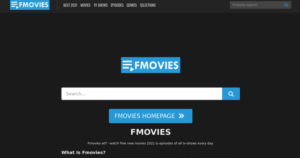In an unprecedented move against illegal IPTV services, an Argentine court has directed Google to remotely remove the MagisTV app from Android devices. This ruling comes after authorities targeted 69 domains tied to MagisTV, a service not available on Google Play but sideloaded by users. The court’s decision is a significant escalation in the fight against digital piracy, potentially setting a global precedent.
The court’s order, dated September 13, 2024, mandates that Argentine internet service providers (ISPs) block access to domains linked to MagisTV, as these domains were found to be violating intellectual property laws. The blocking aims to cut off access to users within Argentina, focusing on resellers of MagisTV subscriptions. Although the primary domain is among those blocked, the disruption to the service’s availability may be temporary.
Connection to Operation 404
This court ruling coincides with a larger anti-piracy operation known as Operation 404, which originated in Brazil and resulted in three arrests in Argentina. Reports linked the suspects to MagisTV. Among those arrested were Hugo Javier Mospan, Leopoldo Federico Peña, and Kevin Ariel Bentancur, all residents of Buenos Aires. Their involvement ranged from selling electronics to operating businesses that imported and distributed devices loaded with pirate apps.
Authorities raided locations suspected of selling TV boxes pre-installed with MagisTV. In one raid, police seized 481 TV boxes in Buenos Aires, while another location yielded three boxes. Two more suspects involved in marketing the devices remain at large.

Beyond Device Seizures: Google’s Role
The most controversial part of the court’s ruling involves Google. Judge Esteban Rossignoli instructed Google to “immediately uninstall” the MagisTV app from devices with Argentine IP addresses. This includes apps sideloaded by users, bypassing the official Google Play store. The court provided Google with technical details, including the specific filename (magis_mobile_v6.5.2.apk) and associated hash values to identify the app.
Prosecutor Alejandro Musso defended this unprecedented measure, stating that simply blocking domains wasn’t enough to combat the millions of copies already installed. “This has never been done before,” Musso said, explaining that Google was tasked with using Android’s operating system to delete the app from devices in Argentina.
Potential Global Implications
This ruling could signal a broader trend in how courts deal with piracy. Prosecutor Musso hinted that other countries facing similar piracy issues may follow Argentina’s lead. “We understand that this measure will be replicated immediately by many countries,” he said, suggesting that MagisTV if it tries to reappear with a new app, would face the same fate again.
For rightsholders like La Liga, this development is a major victory. The Spanish football league has long advocated for the remote deletion of pirate apps from Android devices, and the Argentine court’s ruling aligns with their efforts. LaLiga’s president, Javier Tebas, praised the decision, noting that it addresses both the blocking of illegal domains and the removal of unauthorized apps from users’ devices.
Google’s Response and User Concerns
While Google has yet to respond publicly, the company faces a delicate situation. The idea of remotely deleting third-party apps, especially those installed outside of Google Play, raises concerns about user privacy and the control users have over their own devices. Android users worldwide may be anxious about the potential for similar actions being taken in other jurisdictions, sparking broader debates about the boundaries of corporate and governmental reach into personal technology.
As Google navigates this legal challenge, the broader implications for Android users and global anti-piracy efforts remain to be seen. However, the Argentine court’s ruling has the potential to shape future legal strategies in the ongoing war against digital piracy.






